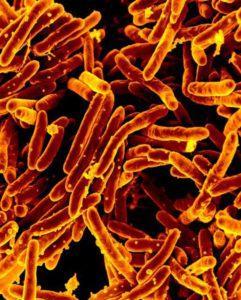Tuberculosis still remains a public health concern especially in developing countries. Although much is known about immune response to M. tuberculosis infection today, there is still much to learn about the dynamics of host-pathogen immune interaction. T-cell proliferation and generation of protective memory during chronic infections depend on Interleukin-7 (IL-7) availability and receptivity.
In this study, the researchers sought to investigate the role of IL-7/IL-7R on T-cell immunity in Ghanaian tuberculosis patients. Blood plasma and T cells were characterized for IL-7/sIL-7R and mIL-7R expression. Tuberculosis patients had lower soluble IL-7R (p < 0.001) and higher IL-7 (p < 0.001) plasma concentrations as compared to healthy contacts. Both markers were largely independent and aberrant expression normalized during therapy and recovery.
Furthermore, tuberculosis patients had lower levels of mIL-7R in T cells caused by post-transcriptional mechanisms. Functional in vitro tests indicated diminished IL-7-induced STAT5 phosphorylation and impaired IL-7-promoted cytokine release of Mycobacterium tuberculosis-specific CD4+ T cells from tuberculosis patients. Finally, the researchers determined T-cell exhaustion markers PD-1 and SOCS3 and detected increased SOCS3 expression during therapy. Only moderate correlation of PD-1 and SOCS3 with IL-7 expression was observed.
This study showed that diminished soluble IL-7R and increased IL-7 plasma concentrations, as well as decreased membrane-associated IL-7R expression in T cells, reflect impaired T-cell sensitivity to IL-7 in tuberculosis patients.
Article by Anthony Afum-Adjei Awuah












